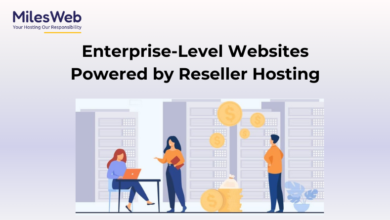How AI and Automation Are Redefining B2B Sales and Beyond

Introduction
In an era of rapid technological evolution, many professionals once grounded in a culture of face-to-face networking, personal trust, and shared experiences now find themselves grappling with a new paradigm: automated communication and artificial intelligence (AI). By 2025, the increasing reliance on AI to perform tasks previously handled through human interaction has led to a palpable shift in how business relationships are formed and maintained. These changes are felt most acutely in B2B sales, where forging and nurturing connections once required extensive personal outreach, negotiations over coffee, and in-person product demonstrations. Instead, automated emails, AI-powered prospecting tools, and self-service portals are fast becoming the norm.
This deterioration in professional relationships is not merely anecdotal. According to a McKinsey study, more than 70% of B2B decision-makers in 2024 reported preferring remote or digital interactions over in-person meetings—up from just 48% pre-pandemic in 2019. While this evolution has brought convenience, it comes at the cost of diminishing human connection and trust. This article explores the root causes of this shift, focusing particularly on the role of AI and automation, the implications for B2B sales, and how organizations like Skail aim to reverse the depersonalization trend by leveraging technology to augment, rather than replace, human touch.
The Emergence of Automation in Professional Settings
Automation and AI have assumed a pivotal role across industries, rapidly handling tasks that previously demanded high levels of human intervention. From appointment scheduling and data analysis to content generation, the efficiency gains are undeniable. According to IDC, global spending on AI reached an estimated $110 billion in 2024, with a projected annual growth rate of over 20%. These advancements have profoundly impacted how professionals interact, particularly in sales and marketing roles where AI algorithms automatically generate prospect lists, craft outreach emails, and even conduct initial chat interactions.
Despite the clear upside in productivity, a subtle erosion of personal relationships has accompanied these transformations. People have grown used to rapid digital transactions and on-demand interactions, which can minimize the depth and quality of connections. Conversations that were once carefully tailored to a single individual’s business objectives and personal interests may now be replaced by a one-size-fits-all approach programmed by software.
Key drivers accelerating AI adoption include:
- Cost Efficiency: Automating routine processes saves labor hours and overhead expenses.
- Data Insights: AI can analyze vast datasets at speeds impossible for humans, offering insights that inform strategic decisions.
- Scalability: AI-powered platforms enable companies to engage with thousands of prospects simultaneously.
- 24/7 Availability: Automation systems never sleep, ensuring round-the-clock availability for queries and support.
While these factors contribute significantly to business growth and profitability, they also amplify the risk of deprioritizing human connection—a necessity for long-term relationship building.
AI, Communication, and the Decline in Interpersonal Depth
Advancements in natural language processing (NLP), sentiment analysis, and predictive text generation have made it relatively straightforward for AI systems to produce messages that appear human-crafted. In fact, Gartner predicted in 2020 that by 2025, 30% of outbound marketing messages from large enterprises would be developed using AI—a significant jump from the then-current rate of less than 2%.
Although this automated communication can be remarkably efficient, it often lacks the nuanced empathy and understanding that define genuine human interactions. For instance, a carefully planned, personalized email from a sales representative—mindful of a prospect’s professional background, shared experiences, and immediate needs—can foster a stronger connection than a mass email that simply addresses the recipient by name. Over time, business stakeholders have begun to sense this impersonality, sometimes disengaging from suppliers they perceive as too transactional.
Primary contributors to the decline in interpersonal depth include:
- Templatized Outreach: Sales sequences often rely on generic templates, leading to messages that feel impersonal.
- Reduced Face-to-Face Interactions: The shift to remote meetings has removed many of the spontaneous, relationship-building moments that occur in person.
- Performance Metrics Over Relationship Metrics: Heavy focus on open rates and click-throughs in marketing fosters a “numbers game” mentality, overshadowing relationship longevity.
- Limited Emotional Context: AI can only approximate empathy, lacking the genuine warmth and understanding inherent in human conversation.
This loss of interpersonal depth is particularly troubling when viewed through the lens of B2B sales, an arena where trust and rapport have historically been paramount.
Impact on B2B Sales: Loss of Genuine Relationship Building
B2B sales traditionally relied on the strength of personal relationships. Seasoned sales professionals cultivated client rapport, built goodwill through repeated interactions, and nurtured a deep understanding of each client’s unique challenges and objectives. This emphasis on authentic human connection set the foundation for partnerships that could last decades.
However, the new wave of AI-driven outreach tools—while groundbreaking in efficiency—tends to prioritize volume over substance. Personalized demos have given way to generic explainer videos, and targeted follow-ups replaced by automated sequences that may or may not address actual client pain points.
Key implications in B2B sales include:
- Overreliance on Data-Driven Outreach: AI scrapes public data from social networks, industry reports, and press releases, quickly crafting messages. Yet these messages can lack the sensitivity and personalization needed to stand out.
- Decreased Trust: Clients, bombarded by multiple AI-generated pitches daily, can become skeptical of outreach claims. The authenticity once conveyed through genuine salesperson effort is diluted.
- Shortened Relationship Lifespans: Rapid, transactional deals leave clients open to jumping ship for competitors who offer equally quick but cheaper solutions, undermining the prospect of building a lasting partnership.
- Erosion of Soft Skills: Sales teams risk letting their communication and negotiation skills atrophy, overshadowed by automated tools that promise speed and simplicity.
While no one can deny that the speed and scale of these tools have opened new markets and created efficiencies, the fundamental principle of sales success—relationship building—faces a significant challenge.
The Underlying Metrics: Statistics Supporting the Shift
To understand the magnitude of the shift, it is essential to examine available data and metrics:
- Remote Preference: As mentioned earlier, McKinsey found that over 70% of B2B decision-makers in 2024 preferred remote or digital communications. This substantial rise from 48% in 2019 highlights how digital transformation has accelerated post-pandemic.
- AI-Adoption in Sales: A study by LinkedIn’s State of Sales 2023 indicated that 80% of B2B companies plan to incorporate AI in their sales processes by 2030, up from 40% in 2022.
- Declining Personal Interactions: According to a 2023 survey by Forrester, over 60% of surveyed business executives felt that the personal touch of sales outreach had dropped “significantly” compared to five years prior.
- Email Saturation Rates: Marketo’s 2024 marketing report revealed that the average email open rate dropped by 15% since 2020, attributed largely to the impersonal nature of automated campaigns.
These metrics collectively underscore the increasingly automated environment in which businesses operate. If left unchecked, the negative repercussions for relationship building and trust may become even more pronounced.
The Human Element: Why Personalization Still Matters
Even amidst an era dominated by automated tools, personalization remains a critical differentiator. The value of a phone call, a personalized video message, or a face-to-face meeting lies in the trust and connection it fosters. Studies suggest that building relationships anchored in empathy and understanding can yield superior long-term outcomes, including customer loyalty and higher lifetime value. A Salesforce survey found that 84% of customers say the experience a company provides is as important as its products and services, highlighting the necessity for meaningful engagement.
Why personalization stands out:
- Trust and Authenticity: Genuine conversations provide a foundation of trust, critical for large-scale transactions and strategic partnerships.
- Client Satisfaction: Clients treated as unique individuals—rather than leads in a CRM—often express higher satisfaction and are more likely to recommend partners.
- Refined Problem-Solving: Personalized conversations uncover nuanced challenges and opportunities, leading to tailored solutions rather than one-size-fits-all offerings.
- Competitive Edge: In a crowded marketplace, a human-driven sales approach that respects technological efficiency yet maintains a personal touch can be a compelling differentiator.
Skail’s Approach: Amplifying the Individual Through AI
One emerging company poised to address these challenges is Skail, led by Founder and CEO Matt Osborn. Unlike platforms that simply automate tasks, Skail focuses on using AI and automation to amplify the individual user’s personality. As Osborn puts it:
“I have managed sales teams and always heard that it was a numbers game, and that is where the market is going. We are creating more communications than ever but each one is losing more and more personality. I wanted to change that—creating an automation platform built around the user first—so we can SKAIL their personality and make business personal—again.”
Skail’s solution helps individuals integrate personal touches into automated outreach—everything from cold outreach to personal relationship-based communications. Rather than eliminating the human factor, the platform uses data analytics, AI-driven sentiment analysis, and dynamic content customization to craft uniquely personal messages. For instance, the system might recommend referencing a prospect’s recent professional achievement or incorporating tidbits of shared interests based on social media signals.
Skail’s platform aims to revitalize the trust and depth once intrinsic to sales relationships, proving that AI can augment human interaction rather than replace it. With this approach, the goal is to stem the tide of depersonalized transactions, offering a blueprint for technology that genuinely enhances rapport-building in a digital-first world.
Potential for Regeneration: Creating the Next Evolution of Relationship Building
While the deterioration of traditional professional relationships is concerning, it is not irreversible. Several strategies could help businesses and professionals rebuild and sustain meaningful connections:
- Hybrid Outreach Models: Combine the convenience of AI-driven email sequences with selective in-person or virtual meetings. This blend aims to maximize efficiency while preserving human interaction.
- Customized Training for Sales Teams: Educate representatives on the correct balance between automation and personalization. Developing soft skills is crucial in the AI era, where empathy can become a unique selling point.
- Ethical Use of Data: Approach data-driven automation responsibly. Minimizing intrusive or misleading data usage fosters trust in AI-based systems.
- Transparency in AI Interactions: Let prospects know when they’re interacting with a bot versus a person. This transparency can build trust by clarifying expectations upfront.
Companies that recognize these imperatives early and adapt their approaches can turn the tide from impersonal, high-volume prospecting to truly meaningful client engagement.
Guiding Principles for Ethical AI Adoption
With AI and automation continuing to shape the professional environment, ethical considerations cannot be overlooked. The steady increase in AI-driven communications has sparked conversations about authenticity, consent, and data governance. While implementing AI technologies, organizations should keep the following principles in mind:
- Respect for Privacy: Obtain explicit consent before using personal data in outreach. Outline how information is being stored and utilized.
- Accountability: Assign responsibility for AI-generated content. This includes ensuring the information is accurate and non-misleading.
- Equity and Fairness: Guard against algorithmic biases. Sales teams must regularly test AI tools to ensure that leads are being approached fairly, without inadvertent discrimination.
- Informed Consent: Let recipients know the extent to which automation plays a role in crafting messages or proposals, preserving the integrity of the relationship.
- Collaboration over Replacement: Implement AI as a partner to human skills, not a replacement. Tools like Skail exemplify how AI can amplify rather than overshadow individual personalities.
By adhering to these guidelines, businesses can harness AI’s benefits while maintaining a moral and empathetic approach, ensuring that technology remains a tool for progress rather than a catalyst for alienation.
Concluding Thoughts
The year 2025 has brought a sobering realization: as AI and automation continue to advance, professional relationships—especially in the realm of B2B sales—risk losing the personal touch that once defined them. Mass outreach campaigns, data-driven prospecting, and automated follow-ups have undoubtedly streamlined processes, but this efficiency often comes at the expense of depth, trust, and genuine human connection.
Yet, this trajectory is not set in stone. Companies like Skail are pioneering a future where technology does not supplant human empathy but instead augments it. By using AI-driven platforms that adapt to an individual’s unique voice and relationship-building style, organizations can reclaim the personal dimension lost amid the digital noise. This model highlights a broader shift: while automation will continue to evolve, so too can our strategies for fostering meaningful relationships in an increasingly interconnected world.
The choice facing business leaders and sales professionals is not between adopting AI or rejecting it altogether; rather, it is between leveraging AI as a blunt instrument for mass communication versus harnessing it as a finely tuned tool that underscores human authenticity. As we progress through 2025 and beyond, those who prioritize authentic engagement, supported by carefully managed automation, will set themselves apart in an era of commoditized outreach. By doing so, they keep alive the traditions of trust, personal rapport, and long-lasting partnerships—hallmarks that many once believed were inevitable casualties of the digital age.





